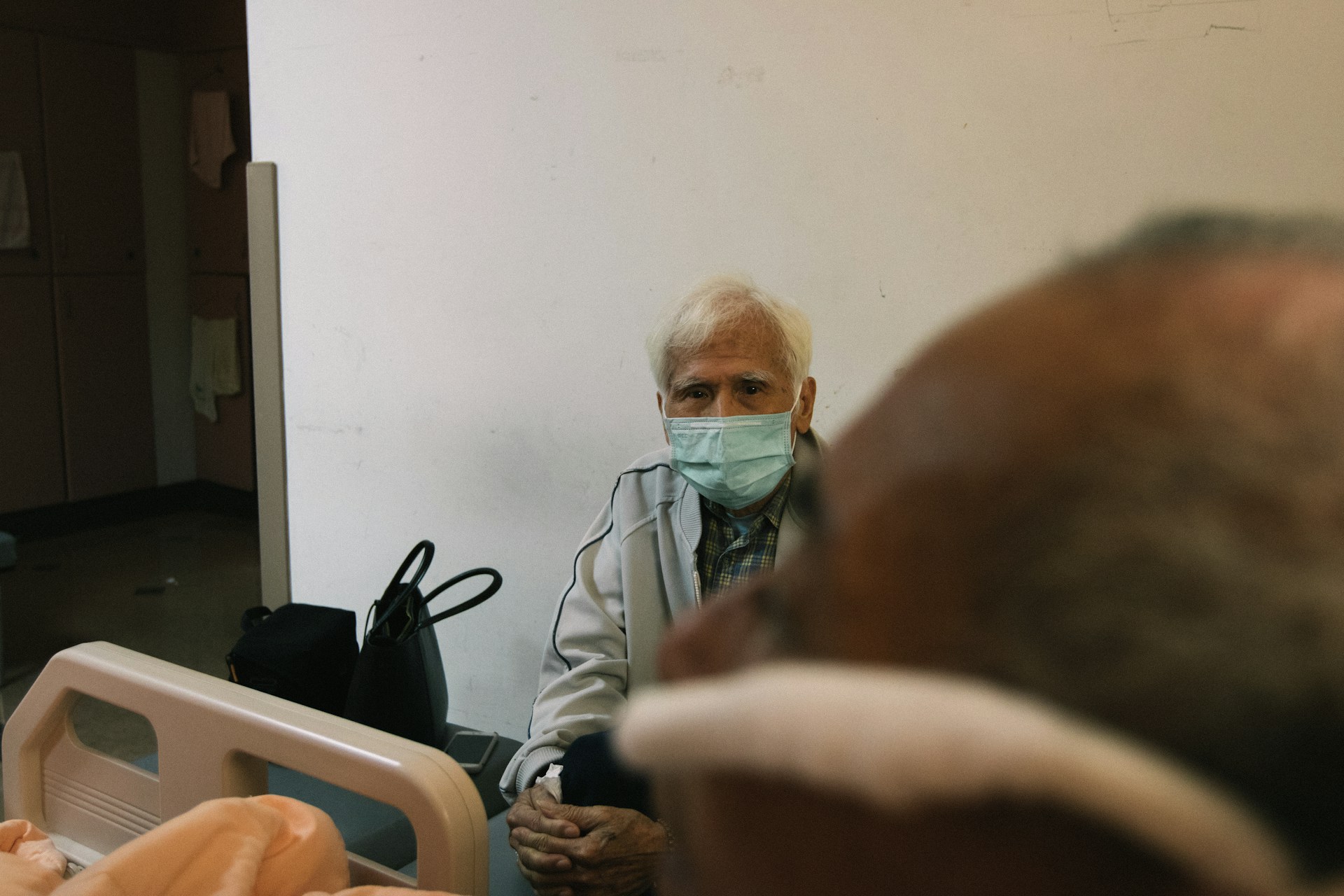Pengaruh Pendidikan Gizi Berbasis Theory of Planned Behavior untuk Mempromosikan Pembatasan Konsumsi Fast Food pada Siswi
Downloads
Background: The incessant promotion of fast food make a perception that fast food is a trend among teenager. Fast food consumption habits that have high calorie but low nutrients will causes nutritional problems in adolescents.
Objectives: The purpose of this study aimed to determine effect of nutritional education based on theory of planned behavior to change knowledge, attitude, subjective norms, perceived behavioral control, intention, and limited fast food consumption among female students in Sidoarjo.
Methods: This study was interventional quasi-experimental research. 32 female students (each 16 female students for interventional group and 16 female students for control group), were selected by simple random sampling. The education was provided based on theory of planned behavior in four sessions. The researcher-made questionnaire based on theory of planned behavior used for data collection.The questionnaire was completed by the students twice, before and three weeks after the implementation of nutritional education. Data were analyze using descriptive statistics, Mann-Whitney, and Wilcoxon Signed Ranks.
Result: The results of this study show nutrition education based on theory of planned behavior influence knowledge (p<0.001), attitude (p<0.001), subjective norms (p=0.002), perceived behavioral control (p<0.001),intention (p<0.001), but doesn't influence limited fast food consumption (p=0.570). Conclusion: Nutritional education based on the theory of planned behavior influence knowledge, attitude, subjective norms, perceived behavioral control, and intention, but not effect to limited fast food consumption. So, nutrition education designed based on TPB effective to be implementation of health promotion.
ABSTRAK
Latarbelakang: Gencarnya promosi fast food menimbulkan persepsi bahwa makanan cepat saji merupakan tren dikalangan remaja. Kebiasaan konsumsi makanan cepat saji yang mempunyai tinggi kalori namun rendah zat gizi menimbulkan masalah gizi lebih dan defisiensi zat gizi mikro pada remaja.
Tujuan: Tujuan penelitian ini dilakukan untuk mengetahui pengaruh pendidikan gizi berbasis Theory of Planned Behavior terhadap perubahan pengetahuan, sikap, norma subyektif, perceived behavioral control, intensi, dan konsumsi membatasi fast food pada siswi di SMA Negeri 2 Sidoarjo.
Metode: Penelitian ini dilaksanakan dengan metode quasy experimental pada 32 siswi (16 siswi kelompok kontrol dan 16 siswi kelompok perlakuan) dipilih menggunakan simple random sampling. Pendidikan gizi berbasis TPB dilakukan selama 4 sesi yiatu sesi sikap, norma subyektif, PBC, dan intensi. Kuesioner penelitian yang digunakan untuk meneliti berbasis TPB. Penilaian dilakukan dua kali, yaitu sebelum dan 3 minggu setelah edukasi. Data dianalisis secara deskriptif, uji Mann Whitney dan Wilcoxon Signed Ranks.
Hasil: Berdasarkan hasil penelitian bahwa pendidikan gizi berbasis theory of planned behavior mempengaruhi pengetahuan (p<0,001), sikap (p<0,001), norma subyektif (p<0,002), perceived behavioral control (p<0,001), dan intensi (p<0,001) tetapi tidak mempengaruhi perilaku siswi untuk membatasi fast food (p=0,570).
Kesimpulan: Pendidikan gizi berbasis TPB dapat mempengaruhi sikap, norma subyektif, PBC, dan intensi tetapi tidak merubah perilaku membatasi fast food. Dengan demikian maka diperlukan pendidikan gizi yang berkelanjutan agar dapat merubah suatu perilaku pembatasan fast food.
Suswanti, Ika. Faktor-faktor yang berhubungan dengan pemilihan makanan cepat saji pada mahasiswa fakultas kedokteran dan ilmu kesehatan UIN Syarif Hidayatullah Jakarta. Skripsi. Jakarta: Universitas Islam Negeri Syarif Hidayatullah. Available form <http://repository.uinjkt.ac.id/dspace/bitstream/123456789/25931/1/IKA%20SUSWANTI-fkik.pdf> 2012. p.25
Al Faris NA, Al Tamimi J. Trends of Fast Food Consumption Among Adolescent and Young Adult Saudi Girls Living in Riyadh. Article Food and Nutrition Research 2015;59:26488. Available form: <https://www.ncbi.nlm.nih.gov/pubmed/25792229. Diakses tanggal 3 Maret 2017.
Kumar H, Palaha R, Kaur A. Study of Consumption, Behavior and Awareness of Fast Food Among University Hostlers. Asian Journal of Clinical Nutrition 2013;5(1):1-7. Available form: < http://scialert.net/fulltext/?doi=ajcn.2013.1.7&org=11> [Diakses 3 Maret 2017].
Majabadi HA, Solhi M. Factors Influencing Fast Food Consumption Among Adolescents in Tehran:A Qualitative Study. University of Medical Science. Iran Red Crescent Medical Journal 2016;18(3):e23890 Available form: Diakses 3 Maret 2017.
Otemuyiwa IO, Adewusi SRA. Effect of Fast food Consumption on Nutrient Intake among Nigerian Elite in Lagos Nigeria. Departemen of Chemistry, Obafemi Awolowo University.. Int Journal Health Nutrition 2012;3(2): 12-19. Available form ;<https://scholar.oauife.edu.ng/sadewusi/publications/effects-fast-food-consumption]-nutrient-intake-among-nigerian-elite-lagos-niger> Diakses 3 Maret 2017.
Johnson S, Sahu R, Saxena P. Nutritional Analysis of Junk Food. Centre for Science and Environment 2012. CSE/PML/PR-41/2012. Available form: http://www.cseindia.org /userfiles /Nutritional_Analysis_Junk_Food.pdf.> Diakses 3 Maret 2017.
Arya G, Mishra S. Effects of Junk Food and Beverages on Adolescents Health-A review Article. Journal of Nursing and Health Science 2013;1: Issue (6Juli-Aug): PP 26-32. Available form <http://iosrjournals.org/iosr-jnhs/papers/vol1-issue6/F0162632.pdf?id =6560> Diakses 3 Maret 2017
Baboli GA., Toranjinejad A., Gilasi RH, Moravejy SA, Gharlipour Z, Ramezani T. Effect of Educational Program on Milk Consumption based on the Theory of Planned Behavior among Girls Students. International Journal Pediatric 2017;5(40):4793-4802. Available form < http://ijp.mums.ac.ir/article_7707_d62f1e343 365f5d56607dc3dd89a0a31.pdf> Diakses 26 April 2017.
Pooreh, S., Nodeh, Z, H. Impact of Education Based on Theory of Planned Behavior: An Investigation into Hypertention Preventive Self-care Behaviors in Iranian Girl Adolescent. Iran Journal Public Health 2015;44(6):839-847. Available form : https://www.ncbi.nlm.nih.gov/pmc/articles/PMC4524309/pdf/IJPH-44-839.pdf [diakses 3 Maret 2017].
Meena M., Varma K. Fast Food Consumption Among Adolescent School Girls In Jaipur. International Journal of Innovative Research and Review 2015. Volume 3 (3): pp 38-42. Available form : < http://www.cibtech.org/J-Innovative-Research-Review/Publications/2015/VOL-3-NO-3/06-JIRR-008-MINALI-FAST-JAIPUR.pdf> Diakses 12 Juli 2017.
Madhavi AVP, Nirmalie MI, Rajapaksa RCW, Chandralatha MMAR, Kumari WMSU, Chandana, L. Body Image Perception and Dietary Patterns Among Teenage Girls. Journal of Nursing 2010;1:1-4. Tersedia di < http://www.ou.ac.lk/ours/wp-content/uploads/2017/05/NSC-43-Formatted-checked.pdf>. [diakses 12 Juli 2017].
Hosseini Z, Aghamolaei T, Gharghani GZ, Ghanbarnejad A. Effect of Educational Interventions based on Theory of Planned Behavior to Promote Breakfast Consumption Behavior in students. Hormogzan Medical Journal 2014;19(1): 35-43. Available form: [diakses 3 Maret 2017].
Ajzen, I. Organizational of Behavior and Human Decision Processes. University of Massachusetts at Amherst 1991. Available form: https://pdfs.semanticscholar.org/6256/ca4853f44ab9acb98f91f0d7848c54185ca7.pdf. Diakses tanggal 3 Maret 2017.
Jalali M, Shamsi M, Roozbehani N, Kabir K. Investigation of Health Education Based on Behavioral Promotion of Urinary Infection Prevention in Pregnant Woman. World Journal of Medicine Sciences 2014;11(4):452-460. Available form < https://www.idosi.org/wjms/11(4)14/4.pdf> [diakses 12 Juli 2017].
Maleki F, Nodeh AH, Rahnavard Z, Arab M. Effectiveness of Training on Preventive Nutritional Behaviors for Type-2 Diabetes Among the Female Adolescents : Examination of Theory Of Planned Behavior. Medical Journal of the Islamic Republic of Iran 2016;30:340-349. Available form : < https://www.ncbi.nlm.nih.gov/pmc/articles/PMC4898877/pdf/mjiri-30-349.pdf > Diakses 26 April 2017].
Soorgi Z, Miri M, Sharifzadeh G. The Impact of Planned Behavior Theory-Based Education on Female Students Obesity-Related Behaviors. Modern Care Journal 2015;12(4):72-86. Available from http://mcjbums.com/en/articles/8672.html. diakses 10 Juli 2017.
Schiffman, L,G., Leslie, L,K.. Perilaku Konsumen Edisi Kedua. Jakarta : PT. Indeks Gramedia 2007;47-83
Fortin, B., Yazbeck, M. Peer Effects, Fast Food Consumption and Adolescent Weight Gain. Journal Research Industral Allience 2015;15(7):1-40. Available from https://www.ncbi.nlm.nih.gov/pubmed/25935739. diakses 12 Juli 2017.
Madhavi, A, V, P., Nirmalie, M, I., Rajapaksa R, C, W., Chandralatha, M, M, A, R., Kumari, W,M,S, U., Chandana, L. Body Image Perception and Dietary Patterns Among Teenage Girls. Journal of Nursing 2010;1:1-4. Available from http://www.ou.ac.lk/ours/wp-content/uploads/2017/05/NSC-43-Formatted-checked.pdf>. diakses 12 Juli 2017.
AMERTA NUTR by Unair is licensed under a Creative Commons Attribution-ShareAlike 4.0 International License.
1. The journal allows the author to hold the copyright of the article without restrictions.
2. The journal allows the author(s) to retain publishing rights without restrictions
3. The legal formal aspect of journal publication accessibility refers to Creative Commons Attribution Share-Alike (CC BY-SA).
4. The Creative Commons Attribution Share-Alike (CC BY-SA) license allows re-distribution and re-use of a licensed work on the conditions that the creator is appropriately credited and that any derivative work is made available under "the same, similar or a compatible license”. Other than the conditions mentioned above, the editorial board is not responsible for copyright violation.












































